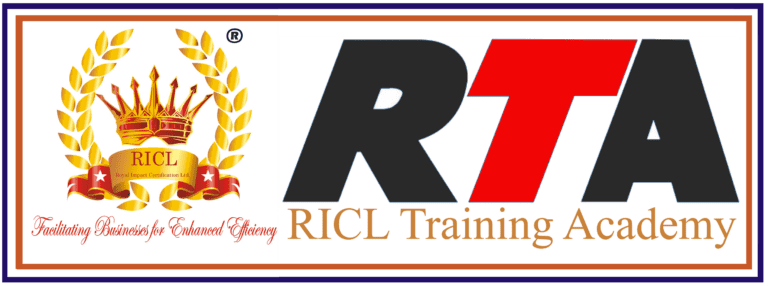The ISO 9001 Lead Auditor Certificate Course. Gain expert training to enhance your auditing skills and achieve certification in quality management. The ISO 9001 Lead Auditor Certification Course is a professional development program targeting those who want to enable themselves with all basic competencies necessary
ISO 9001 Lead Auditor Certificate Course

Introduction to the ISO 9001 Lead Auditor Certification Course
The ISO 9001 Lead Auditor Certification Course is a professional development program targeting those who want to enable themselves with all basic competencies necessary for conducting audits on quality management systems in accordance with ISO 9001. In doing so, ISO 9001 represents one of the most common and applied quality management standards worldwide, directed toward enhancing customer satisfaction by introducing proper quality management practices. Moreover, the demand from organizations seeking to improve their processes, reduce wastages, and enhance the quality of their products is high for qualified lead auditors. Through this course, participants will gain knowledge and competencies required to lead and manage audits in ensuring conformity to ISO 9001.
In any case, the importance of ISO 9001 cannot be overlooked in modern business. This standard is adopted by organizations across sectors to institute a framework of consistent quality assurance and its continuous improvement. In order for these systems to work properly, regular internal and external audits need to be carried out. That is where the lead auditor comes in. They plan, execute, report, and follow up on audits with an aim to ensure that organizations achieve their quality objectives and meet the requirements of ISO 9001.
Course Objectives
The primary objective of the ISO 9001 Lead Auditor Certification Course is to ensure that participants have acquired those skills needed to conduct audits in a competent and effective manner. After completion of the course, participants will be able to do the following:
- Be familiar with the principles and concepts of quality management according to ISO 9001.
- Plan and perform audits upon quality management systems, including the development of audit plans and checklists.
- Manage audit processes to successful outcomes and lead audit teams.
- Evaluate the effectiveness of QMS implementations and find opportunities for betterment.
- Clearly and concisely write reports of audit findings, including recommendations for corrective action.
- Facilitate continuous improvement initiatives in organizations using audit outcomes.
Course Structure and Content
The structure and content of the ISO 9001 Lead Auditor Certification Course differ based on the certifying body and training organization. Typically, it covers a wide range of topics that are intended to help delegates undertake effective auditing. The course usually includes the following:
Introduction to ISO 9001: This module provides an insight into the basics of the ISO 9001 standard, its structure, and the importance this has for quality management. It covers the key principles of QMS regarding customer focus, leadership, engagement of people, process approach, improvement, evidence-based decision making, and relationship management.
Principles of Audit: This module will cover the underlying principles of auditing, such as independence, confidentiality, and ethics imperatives of auditing practices. It introduces the roles and responsibilities of auditors and the characteristics of good audit teams.
Planning and Preparation of Audit: The steps to plan an audit are outlined, including the definition of audit objectives, determination of scope of audit, and the development of an audit plan. It also includes checklists for audits, identification of relevant documentation.
Audit Execution: This module covers the techniques of conducting interviews, process observations, and gathering evidence in relation to an audit execution. It equips participants with skills in managing audit meetings and effective communication with auditees.
Reporting Audit Findings: The section trains participants, after having completed the audits, on how to compile findings into comprehensive reports. This section is important in ensuring that clear, objective, and developmental feedback is offered to organizations.
Follow-up and Corrective Actions: The class addresses what has to be done and how it will be done, including follow-up actions regarding audit findings by monitoring the implementation of corrective actions and providing estimates for their effectiveness. Participants learn to facilitate the continuous improvement of QMS using the auditing process.
Practical Exercises and Case Studies: Most of the courses contain practical exercises, role-plays, and case studies that allow participants to apply knowledge gained in a real-world scenario. This pragmatic approach makes the understanding and retention of auditing concepts very easy.
Benefits of Certification
There are several benefits to be drawn from completing the ISO 9001 Lead Auditor Certification Course for both the participant and his/her organization:
Better Career Advancement Opportunities: The certification is accepted globally, and expresses a commitment to the excellence of quality management. Most employers will treat such professionals as an asset, making it easier to get employed or advance careers.
Better Salary: A certified lead auditor will get better remuneration compared to uncertified professionals. Organizations are ready to pay more for talented professionals willing to add value to the improvement of their QMS.
Improved Organizational Performance: Through the training on effective auditing practices for staff, organizations stand to benefit in terms of improved processes that will yield better products and satisfied customers with reduced operation costs.
Networking Opportunity: During the course, participants usually get a chance to network with their peers who share similar experiences and strategies that turn into success regarding the management of quality and auditing.
Contribution to Continuous Improvement: A certified lead auditor develops a culture of continual improvement in the organizations. They help in achieving quality objectives and improving overall performance by better identification of areas for improvement through auditing.
Role of Lead Auditors
The lead auditor holds a key position in the organization for the implementation and maintenance of the quality management system. Their roles include:
Planning and Leading Audits: The lead auditor shall plan and lead audits of QMS, ensuring that all relevant processes and functions are assessed. He shall set up audit schedules, allocate resources, and ensure adherence to the requirements of ISO 9001.
Evaluation of QMS Effectiveness: Lead auditors, through their assessments, evaluate the effectiveness of an organization’s QMS; that is, its strengths and weaknesses. In doing so, they are giving insights and making recommendations for the organization in order to improve its quality practices.
Training and Mentoring: Quite often, the lead auditor serves as a trainer and mentor, transferring knowledge and experience to internal audit teams and other staff. This builds quality awareness in the organization.
Facilitating Corrective Actions: After the audit, the lead auditors develop a corrective action plan in conjunction with management in response to identified non-conformities. They should ensure that proper measures will be taken to minimize risks and act to prevent recurrence.
Conclusion
In other words, the ISO 9001 Lead Auditor Certification Course is a very relevant and useful career development course at the right time. It helps participants develop auditing skills and gives them a chance to give back towards better management of the quality of various entities. The course is fully loaded with an in-depth curriculum detailing all principles and practices of auditing. The knowledge and competencies acquired from the course enable one to lead the auditing processes of quality management systems effectively.
The role of ISO 9001 in the competitive business environment presents an increasing need for qualified lead auditors to help organizations in achieving and maintaining compliance with quality standards. Such certification opens career growth opportunities to professionals while they play a very vital role in building a culture of quality and continuous improvement within their organizations. Such knowledge and skills, when well utilized from the course, will greatly benefit the individual and the organization with increased customer satisfaction and better operational excellence.
Lead Auditor & Internal Auditor Training: QMS, EMS, OHSMS + Awareness Courses
Refine your know-how in Quality Management Systems by taking our all-inclusive Lead Auditor QMS training course. We equip you with skills necessary for effective auditing as well as ensuring conformance with ISO standards. It is an excellent resource for people who want to become professionals in QMS auditing through detailed knowledge and practical information.”
Become a certified Lead Auditor in Environmental Management Systems with our specialized training course. This program offers necessary know-how and skills for conducting effective inspections while also promoting environmental compliance according to ISO regulations. The perfect opportunity for those looking to progress their career further into the realm of environmental management”
Pursue your career growth using our Lead Auditor OHSMS training course, which is tailored towards equipping you with the skills needed to undertake comprehensive evaluations of Occupational Health and Safety Management Systems. Obtain practical capabilities as well as experience that guarantee individual workplaces’ security conformity with the most recent ISO requirements”.
Our Internal Auditor QMS training can help you improve your auditing skills. This course covers the principles and practices necessary for conducting internal audits of Quality Management Systems. Ideal for professionals looking to increase their understanding of QMS and contribute to organizational excellence.
Our Internal Auditor EMS course will help you enhance your skills in environmental auditing. Learn techniques and standards needed to implement efficient internal audits of environmental management systems, ensuring ISO compliance and its environmental sustainability.
The purpose of our Internal Auditor OHSMS training is to equip you with the necessary skills to conduct effective internal audits. This course gives an extensive overview on how to audit Occupational Health & Safety Management Systems so that you can achieve compliance and create a safe workplace.
Hone your understanding of Quality Management Systems (QMS) through our Awareness Auditor QMS. These courses provide a basic understanding of the principles, benefits and implementation strategies of QMS making them instrumental for improving quality management practices by individuals or teams.
Familiarize yourself with essential knowledge regarding the Environmental Management Systems by exploring our Awareness Auditor EMS. The courses offer an overview of the principles of EMS which will help you comprehend environmental policies and procedures along with their importance in achieving sustainability targets.
Out training programs on Occupational Health and Safety Management Systems are meant to improve your awareness in this field. This course is intended for organizations and individuals, they provide essential information on OHSMS principles and practices that lead to safer and compliant work environments.
Other Blogs
- Adaptability Thrive in a Dynamic World
- Artistic Sense Elevate Expression & Drive Innovation
- Body Language A Key Form of Non-Verbal Communication
- Business Ethics: Upholding Integrity and Sustainability
- Business Etiquette Cultivating Professionalism and Success
- Business Trend Awareness Stay Ahead & Drive Success
- Collaboration Foster Synergy for Collective Success
- Competitiveness Driving Excellence & Superior Performance
- Conflict Resolution Navigate Tensions for Positive Results
- Crisis Management Strategic Response & Communication
- Critical Thinking Empower Strategic Decisions
- Customer Service Excellence: Fostering Relationships and Driving Success
- Customizing ISO Training for Different Industry Needs: A Tailored Approach
- Dealing with Difficult People Constructive Interaction Tips
- Decision Making: Strategies for Complex Environments
- Delegation Strategic Empowerment for Success
- Design Sense Inspire Creativity & Spark Innovation
- Diplomacy Navigate Relationships & Achieve Goals
- Disability Awareness Embracing Inclusion and Empowerment
- Dispute Resolution Foster Collaboration & Harmony
- Diversity Awareness Fostering Inclusion and Collaboration
- Empathy Enhance Understanding & Build Stronger Connections
- Entrepreneurial Thinking Cultivating Innovation and Initiative
- Facilitation Enhance Group Dynamics Effectively
- Feeling Stagnant in Your Career? Start Here
- Giving Feedback Bridging Performance Gaps Effectively
- Humor A Universal Aspect of Human Experience
- Inspiring Cultivate Authentic Leadership
- Interviewing Skills Effective Communication in Recruitment
- ISO 14001 Lead Auditor Courses PDF Download
- ISO 14001 Lead Auditor Courses Study Material
- ISO 14001: Environmental Management Training Essentials
- ISO 22301 Internal Auditor Courses Material Download
- ISO 22301 Lead Auditor Courses Fees
- ISO 22301 Lead Auditor Courses Material Download
- ISO 22301 Lead Auditor Courses PDF Download
- ISO 30000 Internal Auditor Courses Material Download
- ISO 37001 Lead Auditor Courses PDF Download
- ISO 37001 Lead Auditor Courses Study Material
- ISO 41001 Internal Auditor Courses Material Download
- ISO 41001 Lead Auditor Courses Material Download
- ISO 41001 Lead Auditor Courses PDF Download
- ISO 41001 Lead Auditor Courses Study Material
- ISO 45001 Internal Auditor Courses Material Download
- ISO 45001 Lead Auditor Courses Fees
- ISO 45001 Lead Auditor Courses Material Download
- ISO 45001 Lead Auditor Courses PDF Download
- ISO 45001 Lead Auditor Courses Study Material
- ISO 50001 Internal Auditor Courses Material Download
- ISO 50001 Lead Auditor Courses Fees
- ISO 50001 Lead Auditor Courses Material Download
- ISO 50001 Lead Auditor Courses PDF Download
- ISO 50001 Lead Auditor Courses Study Material
- ISO 50001 Energy Management Training for Sustainability
- ISO 9001 Certification A Comprehensive Training Guide
- ISO 9001 Internal Auditor Courses Material Download
- ISO 9001 Lead Auditor Certificate Course
- ISO 9001 Lead Auditor Certification in India
- ISO 9001 Lead Auditor Courses Benefits
- ISO 9001 Lead Auditor Courses Cost
- ISO 9001 Lead Auditor Courses Exam Question and Answers
- ISO 9001 Lead Auditor Courses Fees
- ISO 9001 Lead Auditor Courses Fees
- ISO 9001 Lead Auditor Courses Fees in Chennai,Noida,Delhi
- ISO 9001 Lead Auditor Courses PDF Download
- ISO 9001 Lead Auditor Courses Study Material
- ISO Certification in Delhi NCR
- ISO Certification in India
- ISO Certification in Noida
- ISO Full Form
- ISO Lead Auditor Training Near Noida
- ISO Training for New Employees: Onboarding and Integration Best Practices
- Latest ISO Training Courses & Certificates
- Lead Auditor Certification
- Lead Auditor Course
- Lead Auditor ISO 14001 Course
- Lead Auditor ISO 22000 Course
- Lead Auditor ISO 45001 Course
- Lead Auditor ISO 9001 Course
- Lead Auditor Online Courses
- Lead Auditor Salary
- Lead Auditor Training
- Lead Auditor Training Provider in Delhi
- Lead Auditor Training Provider in India
- Lead Auditor Training Provider in Noida
- Listening The Cornerstone of Effective Communication
- Adaptability Thrive in a Dynamic World
- Artistic Sense Elevate Expression & Drive Innovation
- Body Language A Key Form of Non-Verbal Communication
- Business Ethics: Upholding Integrity and Sustainability
- Business Etiquette Cultivating Professionalism and Success
- Business Trend Awareness Stay Ahead & Drive Success
- Collaboration Foster Synergy for Collective Success
- Competitiveness Driving Excellence & Superior Performance
- Conflict Resolution Navigate Tensions for Positive Results
- Crisis Management Strategic Response & Communication
- Critical Thinking Empower Strategic Decisions
- Customer Service Excellence: Fostering Relationships and Driving Success
- Customizing ISO Training for Different Industry Needs: A Tailored Approach
- Dealing with Difficult People Constructive Interaction Tips
- Decision Making: Strategies for Complex Environments
- Delegation Strategic Empowerment for Success
- Design Sense Inspire Creativity & Spark Innovation
- Diplomacy Navigate Relationships & Achieve Goals
- Disability Awareness Embracing Inclusion and Empowerment
- Dispute Resolution Foster Collaboration & Harmony
- Diversity Awareness Fostering Inclusion and Collaboration
- Empathy Enhance Understanding & Build Stronger Connections
- Entrepreneurial Thinking Cultivating Innovation and Initiative
- Facilitation Enhance Group Dynamics Effectively
- Feeling Stagnant in Your Career? Start Here
- Giving Feedback Bridging Performance Gaps Effectively
- Humor A Universal Aspect of Human Experience
- Inspiring Cultivate Authentic Leadership
- Interviewing Skills Effective Communication in Recruitment
- ISO 14001 Lead Auditor Courses PDF Download
- ISO 14001 Lead Auditor Courses Study Material
- ISO 14001: Environmental Management Training Essentials
- ISO 22301 Internal Auditor Courses Material Download
- ISO 22301 Lead Auditor Courses Fees
- ISO 22301 Lead Auditor Courses Material Download
- ISO 22301 Lead Auditor Courses PDF Download
- ISO 30000 Internal Auditor Courses Material Download
- ISO 37001 Lead Auditor Courses PDF Download
- ISO 37001 Lead Auditor Courses Study Material
- ISO 41001 Internal Auditor Courses Material Download
- ISO 41001 Lead Auditor Courses Material Download
- ISO 41001 Lead Auditor Courses PDF Download
- ISO 41001 Lead Auditor Courses Study Material
- ISO 45001 Internal Auditor Courses Material Download
- ISO 45001 Lead Auditor Courses Fees
- ISO 45001 Lead Auditor Courses Material Download
- ISO 45001 Lead Auditor Courses PDF Download
- ISO 45001 Lead Auditor Courses Study Material
- ISO 50001 Internal Auditor Courses Material Download
- ISO 50001 Lead Auditor Courses Fees
- ISO 50001 Lead Auditor Courses Material Download
- ISO 50001 Lead Auditor Courses PDF Download
- ISO 50001 Lead Auditor Courses Study Material
- ISO 50001 Energy Management Training for Sustainability
- ISO 9001 Certification A Comprehensive Training Guide
- ISO 9001 Internal Auditor Courses Material Download
- ISO 9001 Lead Auditor Certificate Course
- ISO 9001 Lead Auditor Certification in India
- ISO 9001 Lead Auditor Courses Benefits
- ISO 9001 Lead Auditor Courses Cost
- ISO 9001 Lead Auditor Courses Exam Question and Answers
- ISO 9001 Lead Auditor Courses Fees
- ISO 9001 Lead Auditor Courses Fees
- ISO 9001 Lead Auditor Courses Fees in Chennai,Noida,Delhi
- ISO 9001 Lead Auditor Courses PDF Download
- ISO 9001 Lead Auditor Courses Study Material
- ISO Certification in Delhi NCR
- ISO Certification in India
- ISO Certification in Noida
- ISO Full Form
- ISO Lead Auditor Training Near Noida
- ISO Training for New Employees: Onboarding and Integration Best Practices
- Latest ISO Training Courses & Certificates
- Lead Auditor Certification
- Lead Auditor Course
- Lead Auditor ISO 14001 Course
- Lead Auditor ISO 22000 Course
- Lead Auditor ISO 45001 Course
- Lead Auditor ISO 9001 Course
- Lead Auditor Online Courses
- Lead Auditor Salary
- Lead Auditor Training
- Lead Auditor Training Provider in Delhi
- Lead Auditor Training Provider in India
- Lead Auditor Training Provider in Noida
- Listening The Cornerstone of Effective Communication

TESTIMONIALS
What Our Cutomers are Saying About us

Ruis aute irure dolor in reprehender voluptate velit esse cillum dolore fugiat pariatur sint occaecat cupidata non proie sunt in culpa aui officede










Reach us at:
info@ricltrainingacademy.in
support@ricltrainingacademy.in
sales@ricltrainingacademy.in
complaint@ricltrainingacademy.in
Call us at:
9355650992
9355650993
Visit us at:
Royal Impact Certification Limited
623 Tower -B, The Ithum Sector – 62, Noida, 201301.
Copyright © 2024 RICL Training Academy Team


